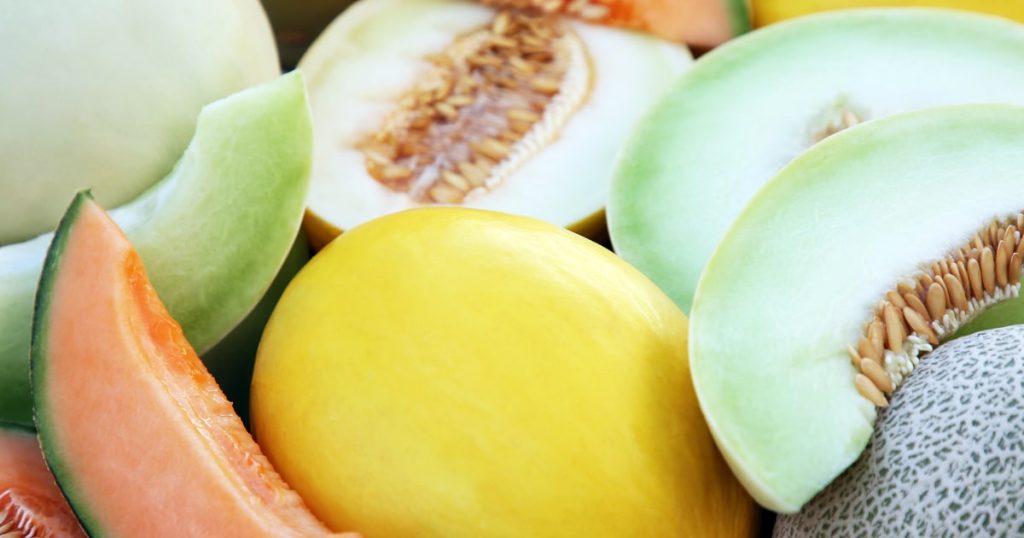Melons, such as cantaloupe and honeydew, are in season from May through September, making it a great time to shop for these delicious and hydrating fruits. While both are nutritious additions to your diet, they have distinct nutritional profiles. Per cup, cantaloupe has 59 calories, 0 grams of fat, 13 grams of carbs, 1 gram of fiber, 1 gram of protein, 360 micrograms of vitamin A, 59 milligrams of vitamin C, 21.7 micrograms of folate, and 243 milligrams of potassium. On the other hand, honeydew has 56 calories, 0 grams of fat, 14 grams of carbs, 1 gram of fiber, 1 gram of protein, 4.65 micrograms of vitamin A, 28 milligrams of vitamin C, 29.4 micrograms of folate, and 353 milligrams of potassium.
Both cantaloupe and honeydew are low in calories, rich in essential nutrients, and high in water content, which can help keep you hydrated. Staying well-hydrated is important for mood, energy, and overall performance, and can also help prevent chronic illnesses. Both fruits offer a way to incorporate more fruit into your diet and provide your body with the nutrients it needs to function optimally. Cantaloupe is particularly high in vitamin A and vitamin C, essential for eye health, immune function, and collagen synthesis. These antioxidants protect against cellular damage, reduce oxidative stress, and help prevent diseases such as heart disease and neurodegenerative conditions.
Honeydew, on the other hand, is higher in potassium, a mineral that plays a key role in maintaining healthy blood pressure levels by helping the body excrete sodium. Potassium also helps relax blood vessel walls, aiding in easier blood flow and lower blood pressure. When it comes to specific health goals, cantaloupe may be more beneficial for eye health due to its lutein and zeaxanthin content, while honeydew’s potassium content may make it more helpful for managing blood pressure. Both fruits provide vitamin C for immune support, with cantaloupe offering higher levels of this crucial nutrient.
While it may be difficult to determine which melon is the healthiest, both cantaloupe and honeydew offer unique benefits for your health. Eating a variety of fruits is important to ensure you receive a wide range of nutrients and support a healthy gut microbiome. In addition to melons, incorporating other plant foods into your diet can help regulate various bodily functions, manage inflammation, and support overall health. Culinary uses for cantaloupe include incorporating it into fruit salads, smoothies, desserts, or pairing it with Greek yogurt and pistachios. Honeydew is great in fruit platters, salads, salsas, cold soups, or blended into smoothies with cucumber and mint. Both melons can be used to create delicious snacks, drinks, and desserts.
In conclusion, both honeydew and cantaloupe melons provide essential nutrients and hydration for your body. They are versatile fruits that can be enjoyed in a variety of ways, making them a valuable addition to your diet. Instead of choosing one over the other, consider incorporating both melons into your meals to benefit from their unique nutritional profiles and flavors. Experimenting with different culinary uses for cantaloupe and honeydew can help you discover new and delicious ways to enjoy these refreshing fruits.













